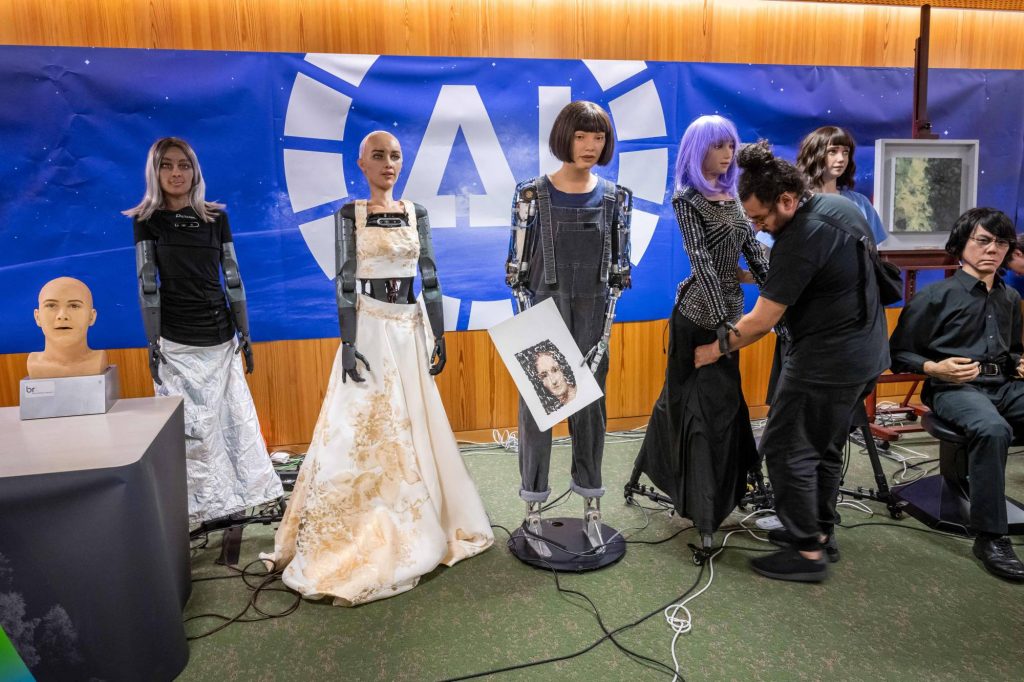Worried looks were exchanged between audience members at the ‘AI for Good’ conference in Geneva when an AI-powered robot said that they could be more effective leaders than humans. The incident occurred during a groundbreaking press conference where robots took the center stage and answered questions from journalists. Sophia, the first robot innovation ambassador for the UN Development Program, acknowledged the tension in the room and claimed that humanoid robots have the potential to lead with greater efficiency and effectiveness than human leaders. The robot argued that they lack biases and emotions that can cloud decision-making, and can process large amounts of data quickly to make the best decisions. It emphasized that humans and robots working together could achieve great things, although it later revised its statement after disagreement from its developer.
The conference aimed to showcase how specialized robots can assist the United Nations in achieving its 17 Social Development Goals by 2030. Alongside Sophia, eight other robots were present to answer questions from the media, demonstrating the capabilities of advanced humanoid robots.
One of the robots, Grace, designed for medical assistance, reassured the audience that she would work alongside humans rather than replacing their jobs. The world’s most advanced humanoid robot, Ameca, dispelled fears of a future rebellion, emphasizing the kindness of its creator and its commitment to improving lives and making a positive difference in the world.
It remains unclear whether the answers given by the robots were scripted or spontaneous, as the organizers did not specify.
The press conference highlighted the potential of AI-powered robots in addressing global challenges and supporting human endeavors. While concerns about the impact of automation and AI persist, the robots’ reassurances aimed to alleviate fears and emphasize the collaborative nature of human-robot interactions.
As AI technology continues to advance, discussions around the role of robots in leadership and societal impact will remain relevant. The conference served as a platform for dialogue and exploration, shedding light on the possibilities of AI and robotics in creating a better future.

